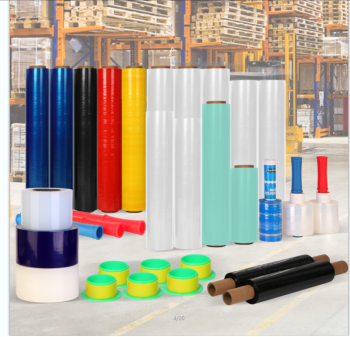Innovative Design Concepts for Sustainable Paper Cups Suitable for Food Packaging
The Rise of Paper Cups for Food
In recent years, the food service industry has seen a marked shift towards sustainable practices, with one of the most notable developments being the increased use of paper cups. Traditionally associated with coffee and beverages, paper cups are now making their way into the realm of food packaging. This evolution heralds a new era for eco-friendly dining solutions, aligning with the growing global consciousness regarding environmental issues.
Environmental Considerations
The surge in popularity of paper cups can primarily be attributed to their environmentally friendly nature. Unlike their plastic counterparts, paper cups are typically biodegradable and compostable. This means that they break down more easily in landfills, reducing the overall environmental footprint of the food service industry. With the dire implications of plastic pollution becoming more evident, many businesses and consumers alike are opting for paper options as part of their commitment to sustainability.
Moreover, the production process of paper cups is generally considered to be less harmful to the environment compared to that of plastic. While it is important to note that paper cups still require resources such as water and energy for production, advancements in manufacturing processes have made them more eco-efficient. Companies are increasingly using recycled materials in the production of paper cups, further minimizing their impact on natural resources.
Versatility in Food Service
The versatility of paper cups is another significant factor contributing to their popularity in the food industry. Initially designed for drinks, these cups now serve a multitude of purposes, from holding soups and salads to being used for desserts and snacks. Paper cups can easily accommodate hot, cold, solid, and liquid foods, making them an ideal choice for a diverse array of menu items.
paper cups for food

This flexibility has also led to innovative food service concepts. Food trucks, pop-up eateries, and casual dining establishments are experimenting with serving entire meals in paper cups, offering customers a convenient and portable dining experience. Patrons can enjoy their meals on the go, a growing trend in our fast-paced society, while contributing to a more sustainable environment.
Branding and Customization Opportunities
In addition to their practical benefits, paper cups provide significant branding opportunities for businesses. With the ability to customize cup designs, companies can effectively communicate their brand identity while promoting environmentally friendly practices. Eye-catching graphics and logos on paper cups can enhance a customer’s dining experience and encourage social media sharing, thus driving brand visibility.
Companies are also beginning to experiment with innovative designs and features on their paper cups, such as double-walled constructions for insulation and sleeves for easier handling. These thoughtful touches improve user experience and demonstrate a commitment to quality and care in presentation.
Challenges and Future Directions
Despite the numerous advantages, the transition to paper cups for food is not without its challenges. Durability and moisture resistance can be issues for certain food items, and price considerations may deter some vendors from making the switch. However, as technology advances and manufacturing processes improve, these challenges are likely to diminish.
Looking ahead, the trend towards eco-friendly food packaging is set to grow, driven by consumer demand for sustainable dining solutions and corporate responsibility. The integration of paper cups into the food service sector is not just a passing fad; it represents a fundamental shift in how we think about food delivery and environmental impact. As more businesses embrace this eco-conscious approach, the future of food packaging appears not only more sustainable but also more inviting for consumers eager to make environmentally friendly choices. In this evolving landscape, paper cups have truly emerged as a symbol of change in the quest for greener food service solutions.
-
The Best Uses for Small Trash Bags in Daily LifeNewsJul.01,2025
-
Stylish Reusable Grocery Bags TrendsNewsJul.01,2025
-
Shipping Advantages of Using Bubble Envelopes BulkNewsJul.01,2025
-
How Compostable Mailing Bags Reduce Environmental ImpactNewsJul.01,2025
-
Environmentally - Friendly Bulk Poly MailersNewsJul.01,2025
-
Eco Friendly Custom Laminated Tote BagsNewsJul.01,2025
-
Have the freedom of customizing your custom mailers any way you want! Our dedicated packaging support will help deliver you the mailing experience you need to elevate your shipping experience to the next level! Start making a strong impression on your customers and stand out from your competitors! -
LIYA uses high quality raw materials which directly purchased from large enterprises domestic and overseas such as PetroChina, Sinopec, Sabic, Equate, ExxonMobil, Dow Chemical, Total, and Borouge, ensuring the price advantage and quality of the raw materials. -
LIYA uses high quality raw materials which directly purchased from large enterprises domestic and overseas such as PetroChina, Sinopec, Sabic, Equate, ExxonMobil, Dow Chemical, Total, and Borouge, ensuring the price advantage and quality of the raw materials.





